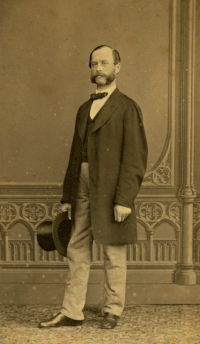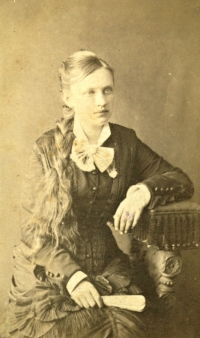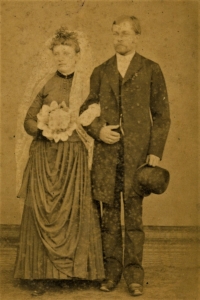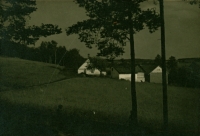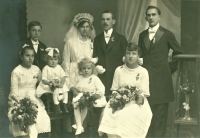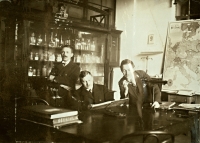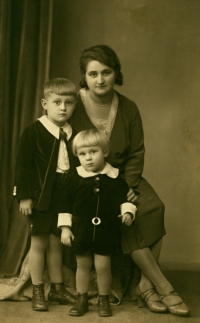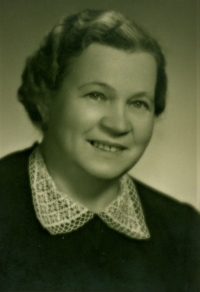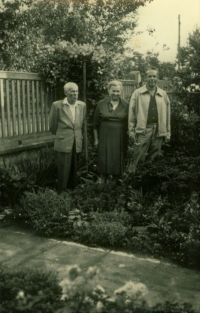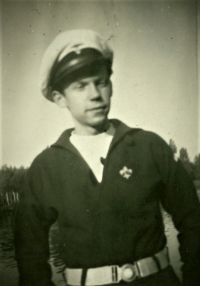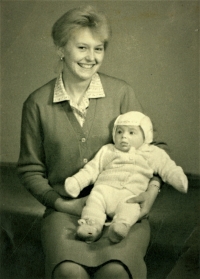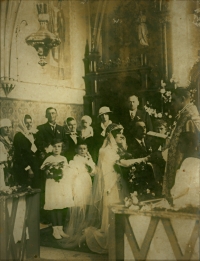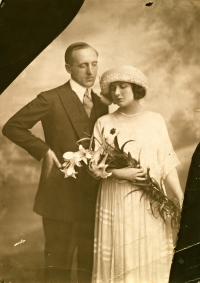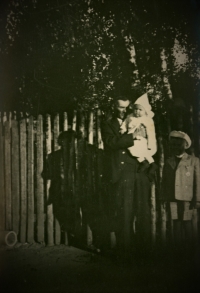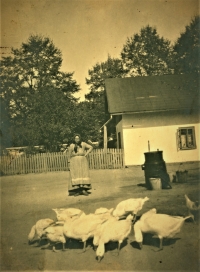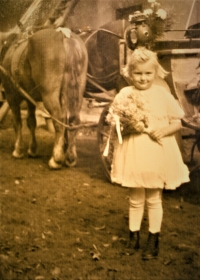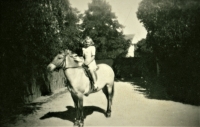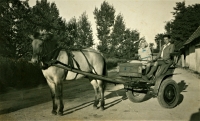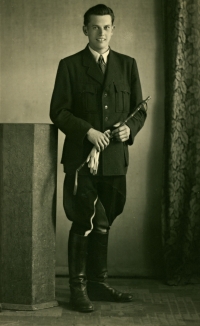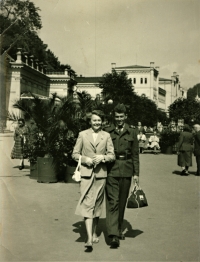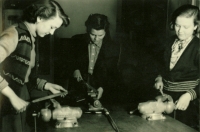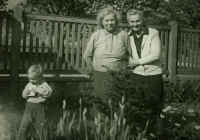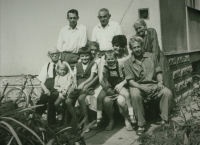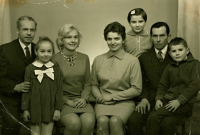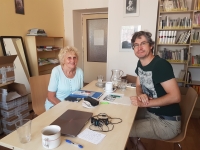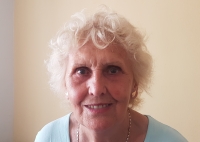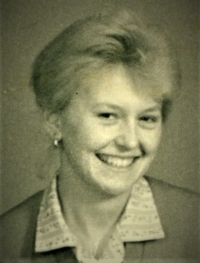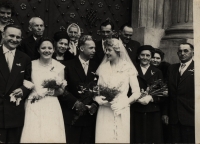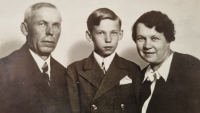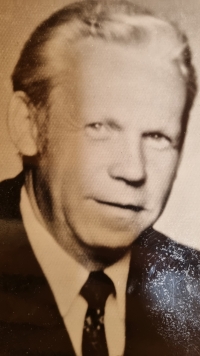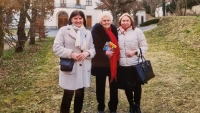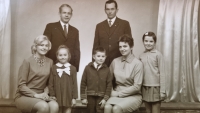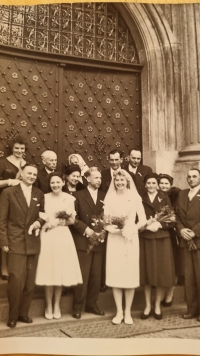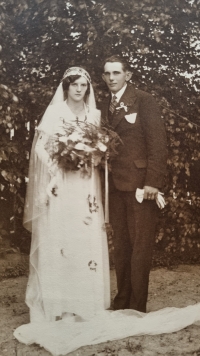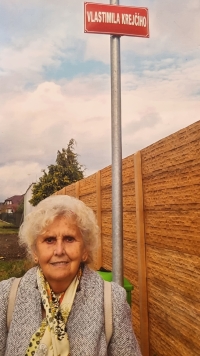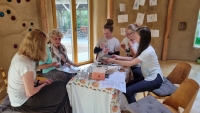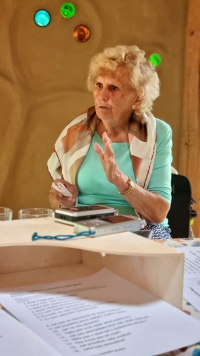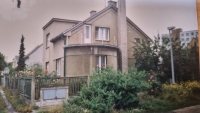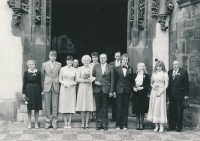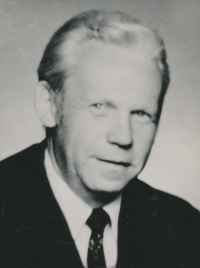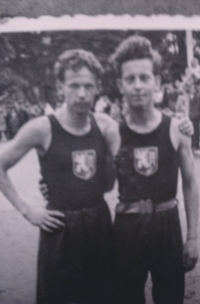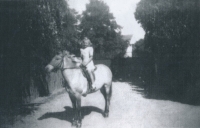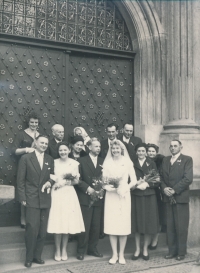They were evicted from their family farm on the back of a truck

Download image
Marie Koukalová was born to private farmers Marie and František Pecka on 13 October 1940. She grew up alongside her older brother František and many employees of the farm No. 10 in Straky near Nymburk. In May 1945 she experienced Soviet bombing in the vicinity of Mladá Boleslav. After 1948 the family was labelled “kulaks” and felt the pressure of increasing compulsory contributions. In February 1952, the Peckas were evicted to a farm in Obora near Ostrá, and their brother František, who was banned from working in the Nymburk district, worked at a cow farm near Kladruby. The situation undermined her father’s health. In 1956, the family moved to Nymburk and Marie studied at the secondary business school in Prague at Vinohrady. She wished to get a placement in Nymburk, which she did, and joined the Jednota cooperative. After the amnesty in 1960, Marie met Vlastimil Krejčí, a newly released political prisoner, who had been convicted in 1950 in a staged political trial in Nymburk. They married in 1961, lived in the same house with her husband’s parents and had a daughter Nelly. In the relaxed atmosphere of the Prague Spring, her husband began working on his rehabilitation, which he achieved in 1969. After her husband’s death in 1974, the family was again persecuted as relatives of a political prisoner, and their daughter Nelly did not get admitted to secondary school. In 1982, Marie remarried, to Josef Koukal. After 1989, the family received restitution of the farm in Straky, which Marie left to her brother František. Now she cooperates with the Museum of Homeland History in Nymburk and organizes the family archive.
